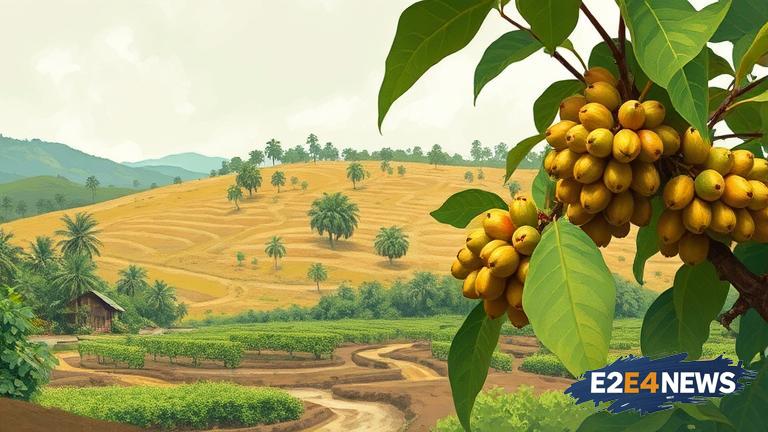In a bid to diversify and strengthen the agricultural sector in Dakshina Kannada, farmers are being motivated to cultivate coffee alongside arecanut. This innovative approach aims to increase crop yields, enhance farmers’ incomes, and promote eco-friendly farming methods. The region’s fertile soil and favorable climate make it an ideal location for coffee production, with several varieties of coffee beans being suitable for cultivation. By growing coffee alongside arecanut, farmers can capitalize on the existing infrastructure and expertise, reducing the need for additional investments. Moreover, coffee plants can thrive in the shade provided by arecanut trees, creating a symbiotic relationship between the two crops. This integrated farming system can also help to maintain soil health, conserve water, and reduce the use of chemical pesticides and fertilizers. The local administration and agricultural experts are providing guidance and support to farmers, including training sessions, workshops, and access to high-quality coffee seeds and planting materials. Additionally, initiatives are being taken to establish coffee processing units and marketing channels, ensuring that farmers receive a fair price for their produce. The promotion of coffee cultivation in Dakshina Kannada is expected to generate employment opportunities, stimulate rural development, and contribute to the region’s economic growth. As the demand for specialty coffee continues to rise, both domestically and internationally, the region is poised to become a significant player in the coffee industry. The arecanut-coffee cultivation model can serve as a template for other farming communities, demonstrating the potential for sustainable and profitable agriculture. Farmers are being encouraged to adopt this integrated approach, which can help to mitigate the risks associated with monoculture farming and promote a more resilient and diverse agricultural ecosystem. The initiative has garnered support from local stakeholders, including farmers’ organizations, cooperatives, and community groups. The government is also providing incentives and subsidies to farmers who adopt this innovative farming practice. As the project gains momentum, it is expected to have a positive impact on the environment, with the promotion of shade-grown coffee and the conservation of biodiversity. The region’s unique terroir and microclimate are expected to impart distinct flavor profiles to the coffee, making it a sought-after product among coffee connoisseurs. With the right support and infrastructure, Dakshina Kannada can emerge as a major coffee-producing region, rivaling other prominent coffee-growing areas in the country. The success of this initiative can also inspire other regions to explore similar farming models, contributing to the growth and development of the agricultural sector as a whole. By fostering a culture of innovation and sustainability, the region can ensure a brighter future for its farming communities and contribute to the country’s economic prosperity. The arecanut-coffee cultivation model is a testament to the potential for collaborative and sustainable farming practices, highlighting the importance of interdisciplinary approaches and community engagement. As the region continues to promote and support this initiative, it is likely to become a model for sustainable agriculture and rural development, with far-reaching implications for the environment, the economy, and society as a whole.
